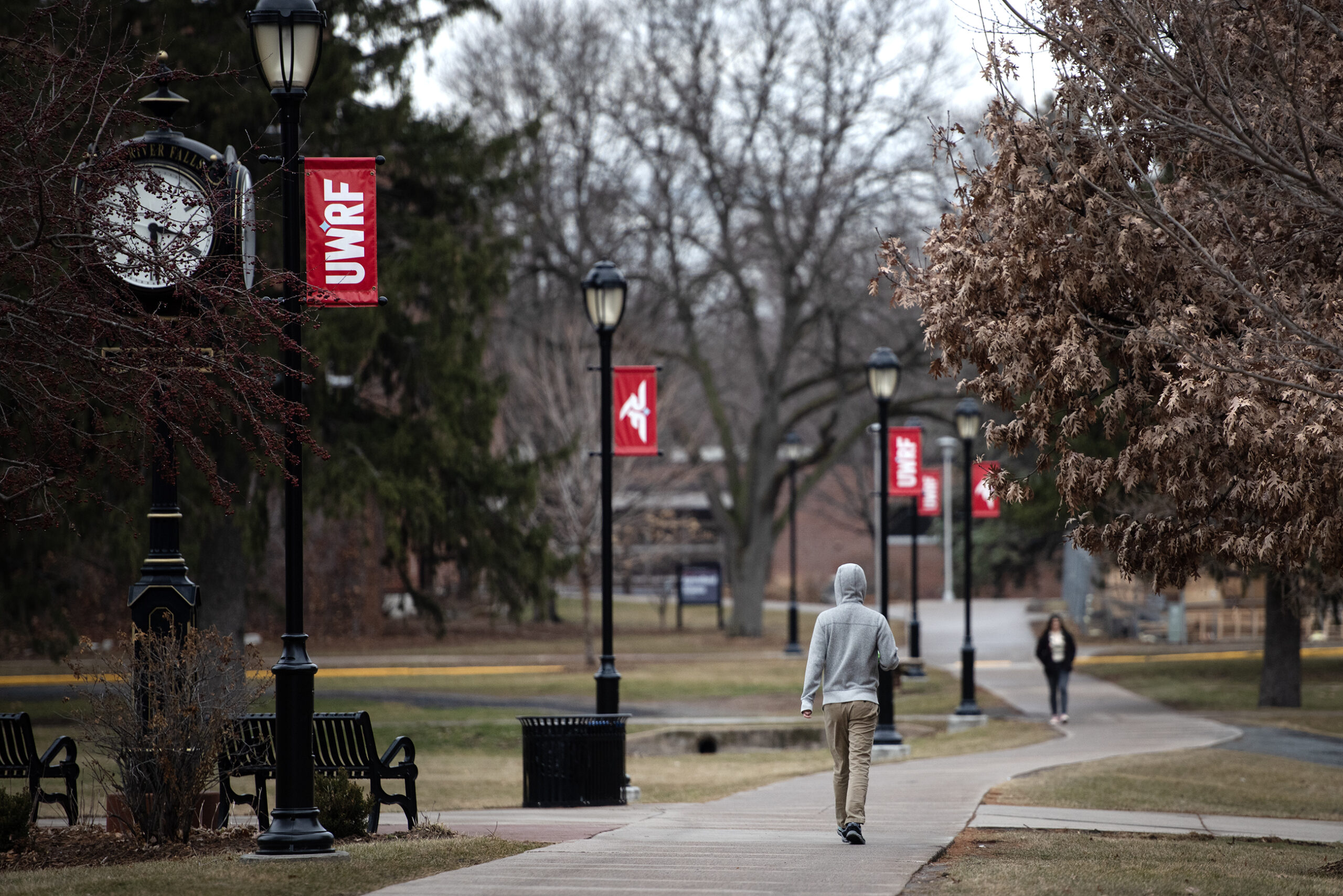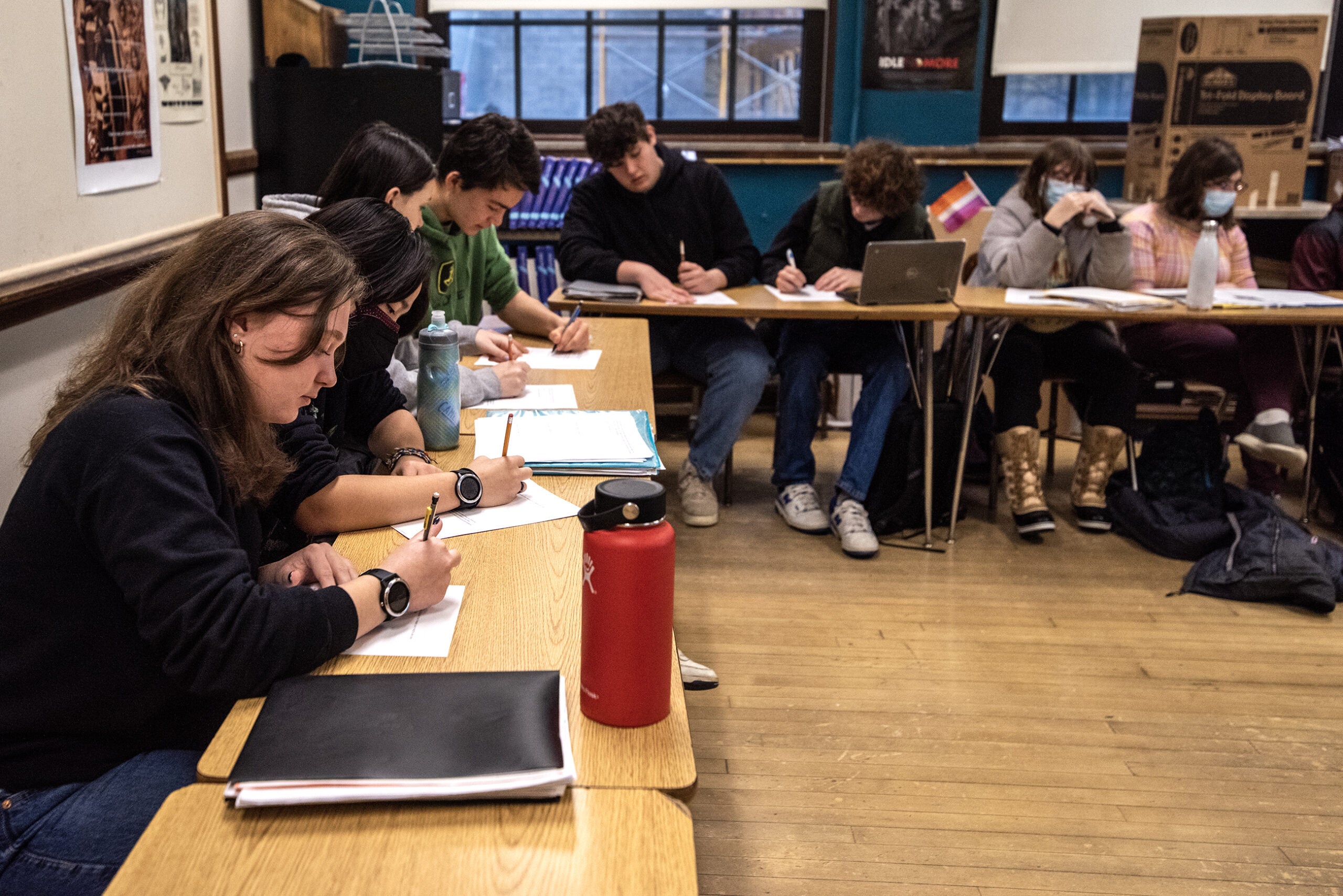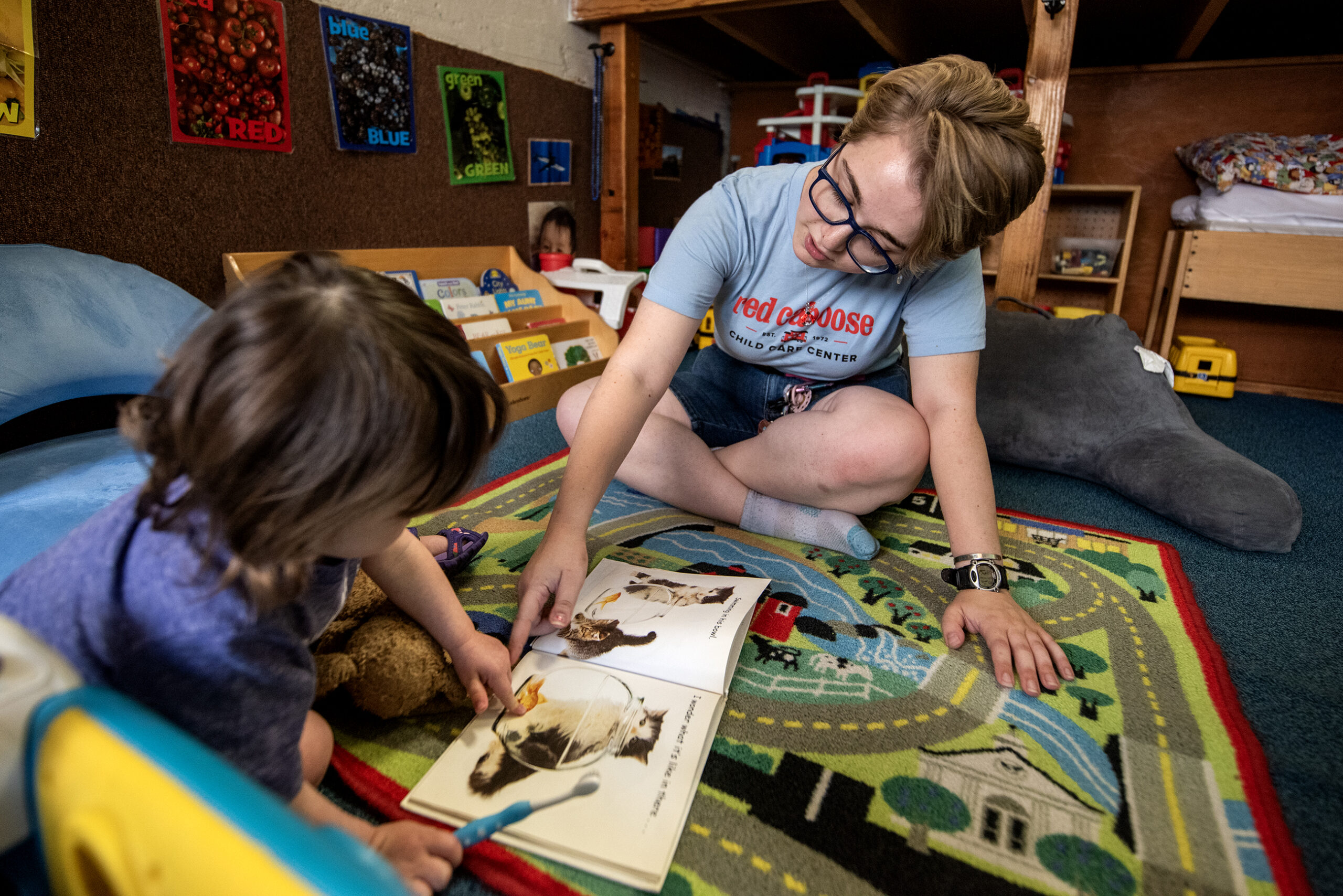The start of the school year can mean new school supplies and schedules, as well as new anxieties for some Wisconsin students.
The latest report from the Wisconsin Office of Children’s Mental Health shows more than half of high school students reported experiencing anxiety when surveyed last spring.
Linda Hall, director of the state agency, said both girls and boys reported that school was their top source of stress.
Stay informed on the latest news
Sign up for WPR’s email newsletter.
“At the beginning of the school year, it’s really about having to get back into a building with lots of people,” Hall said. “You’re going to have a different teacher, or maybe a different set of teachers, you’re going to be with a different set of kids and it can all be new.”
She said there are ways adults can recognize back-to-school stress in their kids, and help students reset the way they think about returning to classes.
Start by listening to a student’s fears about returning to class
Hall said the easiest way for parents and guardians to find out if their student is anxious about the start of school is to ask them about it.
“Listen to see what it is that they’re concerned about and how they’re managing their stress,” she said, adding that kids themselves report wanting their parents to listen more.
She said adults can be intentional listeners by putting down their phone or other distractions and making eye contact. Just like with infants, eye contact creates a physical response that can help both the child and adult feel more connected.
Hall also recommends parents have a regular time every day to listen to their child.
“It can be five minutes,” she said. “Just listen and keep that line of communication open and really unstructured.”
Extracurriculars can make school a more positive experience
Getting kids involved in extracurricular activities at school can be another way to address their fears and boost self-confidence, Hall said.
“It doesn’t have to be sports, it could be music, it can be drama, but think about the positive ways that they can engage with others in school,” she said.
This is especially true if a student has struggled academically. Hall said focusing on something a child feels good about can help build them up and reset their feelings about school.
She said clubs and teams also lead to more conversations with their peers, which can be important to positive mental health. She said more than 300 schools in Wisconsin now have student-led mental health awareness organizations that are focused on offering peer support.
“If your child is reaching out, there’s a good chance now that they’re going to be talking to somebody else at school who understands the value of being supportive to a friend,” Hall said.
Paying attention to physical health can help signal it’s time for more support
Hall said parents and guardians need to make sure their student is eating healthy and has a good sleep schedule before the start of the year. The Centers for Disease Control and Prevention reports that children who do not get the recommended eight or more hours of sleep have a higher risk of poor mental health, as well as obesity and attention or behavior problems.
Adults also need to watch for signs that their child is experiencing a more serious type of stress or anxiety around the start of school.
“If your child is suddenly more withdrawn, isn’t eating normally, maybe engaging in some risky behaviors, those are things to watch a little more closely,” Hall said.
She said if a parent feels their conversations aren’t helping to address the issue, they can reach out to their child’s pediatrician for advice on what to do next. Hall also suggested checking with their child’s school to see what kind of support might be available, such as a school counselor or social worker.
Wisconsin Public Radio, © Copyright 2025, Board of Regents of the University of Wisconsin System and Wisconsin Educational Communications Board.





